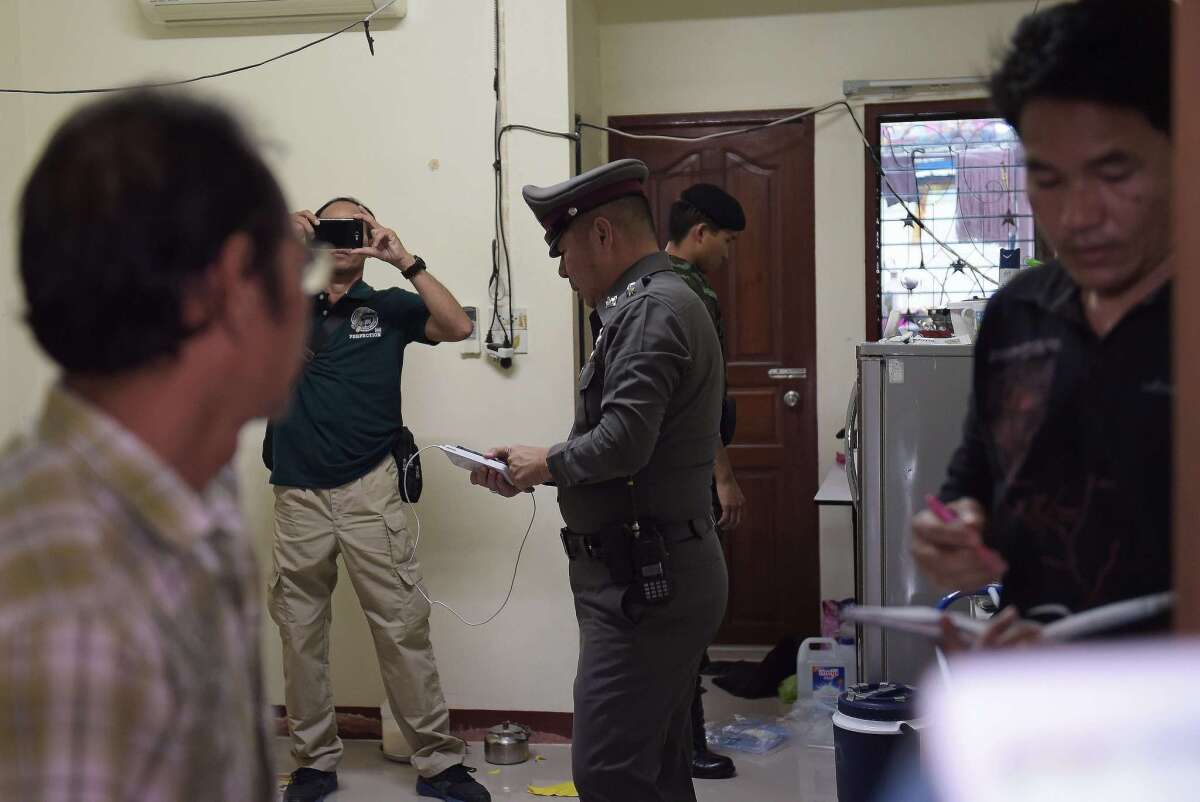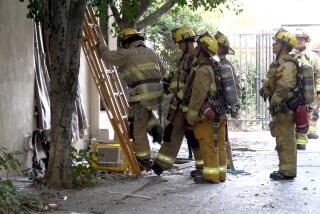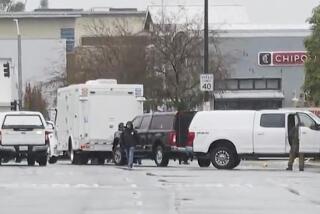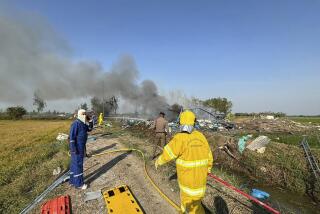Thai police discover bomb-making materials in 2nd apartment

Thai police conduct a search operation at apartment blocks on the outskirts of Bangkok on Aug. 30, 2015.
Thai police said Monday that they discovered bomb-making materials during a raid of a second apartment on the outskirts of the capital, as authorities widened their search for suspects in Bangkok’s deadly bombing.
National police spokesman Prawuth Thavornsiri said that police found fertilizer, gunpowder, digital clocks and remote-controlled cars whose parts can be used for detonation, among other items, during a raid over the weekend at an apartment in Bangkok’s Min Buri district.
“These are bomb-making materials,” Prawuth said. “Nobody would keep urea fertilizer and gunpowder unless they wanted to make a bomb.”
Min Buri is near the neighborhood where police on Saturday arrested an unnamed foreigner and seized a trove of bomb-making equipment that included detonators, ball bearings and a metal pipe they believe was intended to hold a bomb.
Prawuth said police were looking to issue three or four more arrest warrants, but declined to give more details.
Saturday’s arrest was the first possible breakthrough in the investigation into the Aug. 17 blast at the Erawan Shrine, which killed 20 people, more than half of whom were foreigners, and injured more than 120 others.
Much remains unknown about the suspect, including his nationality, his motive, his relationship to the alleged bombing network or whether he was plotting an attack, Prawuth said, adding that another attack was “possible” because police found 10 detonators.
“We still have to work out the details,” he said. “But we are very certain he’s part of the network” that carried out the bombing, he said.
NEWSLETTER: Get the day’s top headlines from Times Editor Davan Maharaj >>
On Sunday, Prawuth said that that the interrogation was proceeding slowly.
“He is not cooperating much. From our preliminary investigation, we think he isn’t telling us the truth,” Prawuth said, declining to elaborate. “He told us how he entered Thailand but we don’t believe everything he says.”
He said police were working with “a number of embassies” and interpreters to try to establish the man’s nationality, adding that he did not speak Thai but spoke some English.
Authorities have dodged questions about whether the suspect is believed to be Turkish, saying that he was traveling on a fake passport. Images circulated online after his arrest of a fake Turkish passport with the apparent suspect’s picture.
“We don’t know if he is Turkish or not,” Prawuth said Saturday.
The Turkish Embassy in Bangkok could not immediately be reached for comment. A Turkish government spokesman contacted over the weekend in Istanbul said he had no information on the suspect or any possible Turkish link to the attack.
The blast at the Erawan Shrine was unprecedented in the Thai capital, where smaller bombs have been employed in domestic political violence over the last decade, but not in an effort to cause large-scale casualties.
More to Read
Start your day right
Sign up for Essential California for news, features and recommendations from the L.A. Times and beyond in your inbox six days a week.
You may occasionally receive promotional content from the Los Angeles Times.






